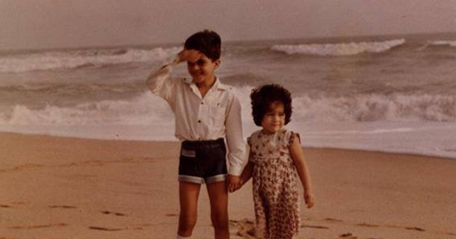The pathology report arrived a few days later showing a low grade oligodendroglioma. I had been given a second chance! I had a highly treatable, even if not curable, tumor.
Oligodendrogliomas account for only 4 percent of all primary brain tumors, and, in younger patients, have a survival rate of 90 percent over five years. In contrast, a glioblastoma, the kind my brother had, is the most common and aggressive tumor, accounting for just over half of all primary brain tumors, with a median survival rate of only 12 to 18 months.
Despite the relief that came with the positive news, I’m still looking at a year’s worth of treatment with both radiation and chemotherapy. The radiation will be likely to have an adverse long-term impact on my cognitive skills. But if it’s a choice between that or more years of life, the decision is easy, especially if you have young children.
The irony is that for much of my adult life, since my brother died, I kept asking doctors to check my head for any signs of brain tumors, given my family history. Everyone told me the same thing: They are not hereditary. While I wondered if there could have been something environmental that my brother and I were exposed to, I was more worried about it being genetic. I grew up in a joint family system with both my parents, grandmother, uncles, aunts, and lots of young cousins — none of whom have it (even though they were exposed to the same environment).
Before my diagnosis, I once showed up at a doctor’s office specifically asking her to do an M.R.I., but she refused and told me kindly that tumors don’t run in families. Later, after my seizure, I confronted several neuro-oncologists, asking if they would have screened me before my diagnosis. But they all told me that they would not screen patients for brain tumors unless they were symptomatic.
Medical research is on their side. It shows there’s only a 5 percent chance of brain tumors being hereditary. My brother was the first among our eight uncles and aunts and 19 cousins, and now I’m the second.
On my insistence, the doctor ran a genetic test, checking for mutations to see if I’m predisposed to having a brain tumor. It came out negative, showing no correlation to my brother’s disease. But the doctor admitted gaps in his understanding. He had treated a man with glioblastoma, for example, whose two children had it too, and the genetic report turned out negative. “Ask me in 10 years, and I might have a different answer,” he said.
[ad_2]
Source link


